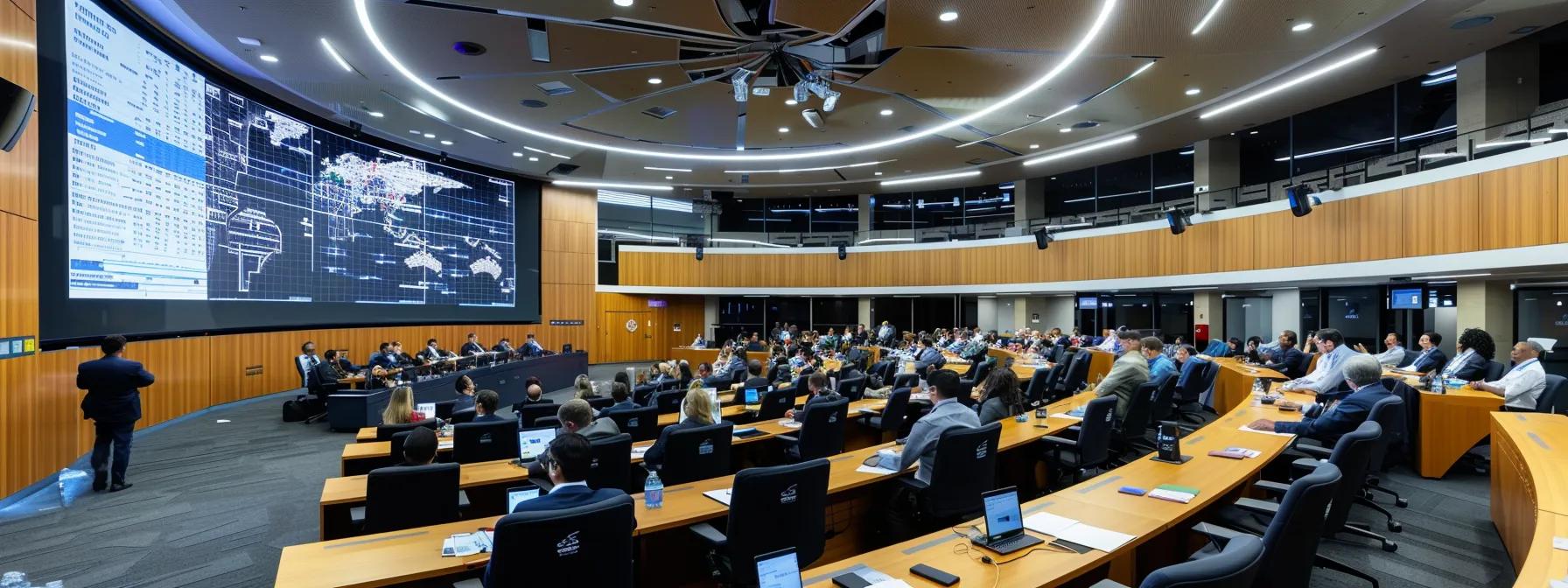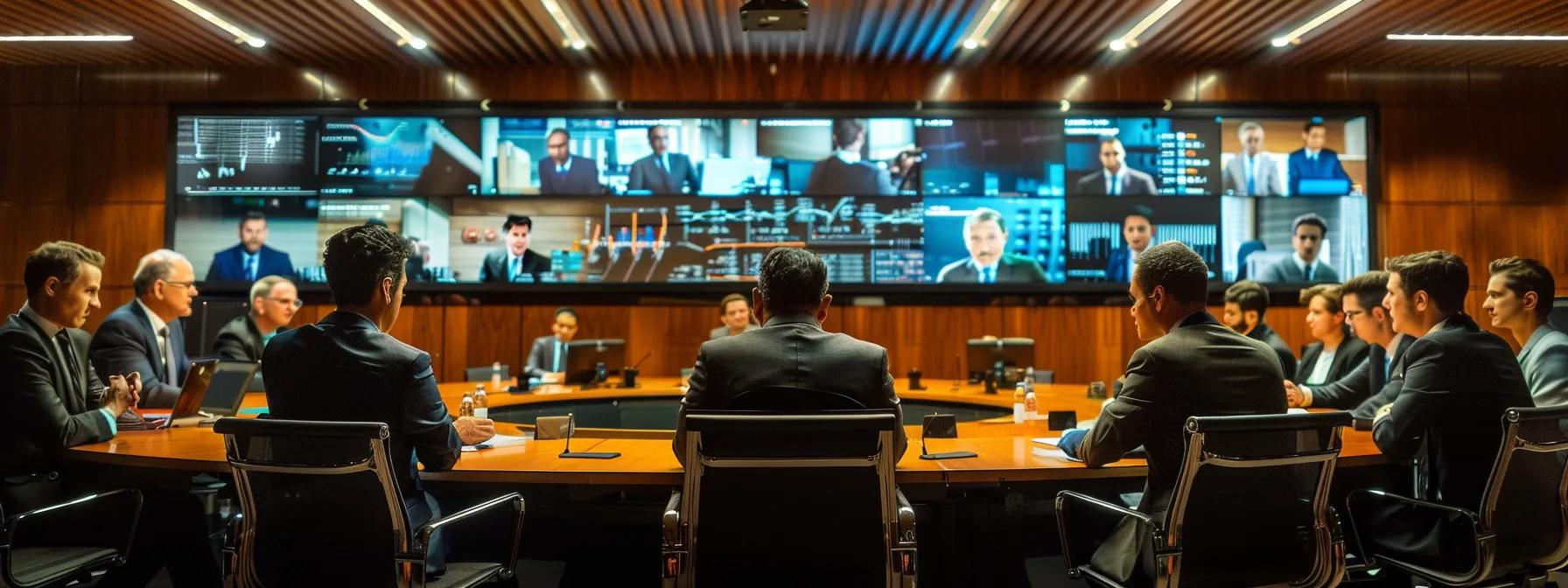Nuclear Power Foreign Direct Investment: How to Protect and ISDS
The landscape of nuclear power foreign direct investment (FDI) is both promising and complex. As a foreign investor, you are increasingly drawn to nuclear energy projects due to their long-term capacity to generate base load power, support energy independence, and drive sustainable development goals. However, the capital-intensive nature of nuclear power plants, the inherent risks associated with nuclear safety, and the sensitive political and regulatory environments of host countries present unique challenges. In this article, you will discover how to secure your investments in nuclear power by leveraging Investor-State Dispute Settlement (ISDS) mechanisms and implementing risk-mitigation strategies that suit the nuclear energy market. We explore global trends in nuclear investment, analyze the regulatory frameworks governing such investments, and outline the specific hurdles you may face including political volatility and public opposition. Additionally, we detail strategies such as negotiating robust investment agreements, employing political risk insurance, and fostering local partnerships to protect your assets. By understanding these critical aspects along with the proper steps to initiate an ISDS claim, you can navigate the intricate world of nuclear FDI confidently and effectively. This comprehensive guide is designed to empower you with substantial insights—from the role of key structures like reactor pressure vessels and boiling water reactors to the implications of enriched uranium and natural uranium—in ensuring that your venture into nuclear energy is both secure and profitable.

Understanding Foreign Direct Investment in the Nuclear Power Sector
Investing in nuclear power projects entails a deep understanding of both the technological intricacies and the legal frameworks that govern these capital-intensive ventures. As a foreign investor examining nuclear energy projects, you must first comprehend what constitutes foreign direct investment in this sector. Foreign direct investment typically involves injecting capital into nuclear power plants which may include financing reactor pressure vessels, boiling water reactors, and small modular reactors. These projects are closely tied to both global energy security and environmental protection, as nuclear technology produces minimal greenhouse gas emissions compared to fossil fuels. Countries with significant nuclear infrastructures, such as those hosting the San Onofre Nuclear Generating Station or pressurized water reactors like those supported by Westinghouse Electric Company, have established frameworks to attract multinational corporations and foreign portfolio investment by offering favorable FDI markets and policies.

Defining Foreign Direct Investment in Nuclear Energy Projects
FDI in nuclear energy projects involves direct capital infusion by a foreign entity into entities that operate or expand nuclear power facilities. This type of investment is characterized by substantial capital commitment, transfer of advanced nuclear technology, and often includes participation in ownership and management decisions. You will find that such investments often include partnerships with established nuclear technology companies or governments with strategic interests in nuclear safety and radiation protection. The role of the nuclear energy institute becomes critical here, as it offers guidelines and best practices to ensure that investments comply with international standards. Moreover, foreign direct investment in nuclear power is not solely about profit—it also supports national objectives, such as reducing carbon emissions and achieving sustainable development goals as outlined in the Paris Agreement. This integration of financial, technological, and strategic elements makes FDI in nuclear power a multifaceted endeavor, demanding rigorous due diligence and a comprehensive risk management strategy.

Global Trends in Nuclear Power Foreign Direct Investment
Globally, trends in nuclear FDI reveal a dynamic interplay between energy demand, regulatory reform, and international trade law. Governments and multinational corporations are increasingly investing in nuclear power to achieve energy independence and support base load energy generation. The spread of small modular reactors, designed to be both scalable and safer, has attracted significant attention on the international stage. Key commercial centers like the United Nations Commission on International Trade Law and international investment agreements play pivotal roles in shaping the FDI landscape by providing dispute settlement mechanisms. Additionally, emerging markets in North America and Latin America are opening up to foreign capital, spurred by the promise of stable returns over extended project lifespans. In this context, disputes often become inevitable due to differences in regulatory policies and investor protection standards. As a foreign investor, you must be aware of such trends and how they impact opportunities for investments in projects involving enriched uranium, natural uranium, and nuclear reactor innovations. These developments underscore the need for robust legal protection frameworks like ISDS to safeguard your investment from unexpected regulatory or political shifts.

Key Motivations for Investing in Overseas Nuclear Power
When deciding to invest in nuclear power, your motivations will likely include ensuring energy security, supporting environmental protection policies, and capitalizing on the high capacity factors associated with nuclear power plants. Nuclear FDI portfolios are attractive due to their long-term returns and the strategic asset value they provide to investors. Projects such as those involving enriched uranium and the use of pressurized water reactors are designed to ensure high reliability and efficiency, contributing significantly to the electrical grid’s stability. Moreover, international treaties and agreements related to nuclear safety, such as those derived from atoms for peace initiatives, provide a framework that reassures investors of the safety and sustainability of these projects. These strategic motivations are often backed by comprehensive feasibility studies and risk assessments. For instance, while multinational corporations may view nuclear power investment as a tool to promote energy independence, the potential for dispute settlement through ISDS mechanisms offers an added layer of security. Additionally, investments in nuclear power resonate with global sustainable development objectives, making them appealing to both governmental bodies and private investors interested in long-term strategic gains.

Regulatory Frameworks Governing Nuclear FDI
Regulatory frameworks for nuclear FDI are designed to ensure nuclear safety, environmental protection, and adherence to international standards. As a foreign investor, you must navigate a landscape that includes both domestic national regulations and international legal instruments. These regulatory frameworks cover aspects such as nuclear material control, radiation protection rules, and nuclear reactor licensing. Entities like the International Atomic Energy Agency (IAEA) and the World Nuclear Association provide guidelines and recommendations that domestic regulatory bodies incorporate into their policies. Such frameworks are critical in maintaining high safety standards and ensuring accountability in disputes over issues like radioactive waste or nuclear decommissioning. Additionally, legal instruments such as the United Nations Commission on International Trade Law (UNCITRAL) and bilateral investment treaties help define the protection scope for FDI in nuclear projects. These instruments ensure that facilities like research reactors or small modular reactors comply with both technical and operational standards. By understanding these regulations and securing adherence through strong legal agreements, you mitigate risks and enhance the overall security of your investment.

Specific Challenges of Foreign Investment in Nuclear Power
Investing in nuclear power is fraught with unique risks and uncertainties that go beyond conventional FDI challenges. Political and regulatory instability, public opposition due to environmental concerns, and fluctuating policy frameworks often complicate foreign direct investments in the nuclear sector. As a foreign investor, you face the daunting task of managing long-term financial risks, including the possibility of unexpected changes in host state energy policies that could affect the profitability of your investment. There is also the inherent challenge of ensuring that projects involving critical infrastructure—such as reactor pressure vessels or containment buildings—comply with stringent safety regulations to prevent accidents similar to historical events like the Three Mile Island accident or Fukushima Daiichi nuclear power plant incident. Moreover, the technical complexity associated with nuclear fuel cycles and the associated costs of waste management and nuclear decommissioning further augment these challenges. Effective strategies require proactive measures such as negotiating dispute settlement clauses, obtaining political risk insurance, and building strong local partnerships. These approaches are essential to mitigate risks related to nuclear safety and policy shifts while ensuring that your investment remains secure and profitable over its lifecycle.

Key Takeaways: – FDI in nuclear power integrates long-term returns with high strategic asset value. – Regulatory frameworks from national and international bodies provide critical protection. – Challenges include political, environmental, and technical risks that require robust legal and financial strategies.
The Role of ISDS in Safeguarding Nuclear Power Investments
Investor-State Dispute Settlement (ISDS) mechanisms play a vital role in securing your nuclear power investments by providing a legal avenue to resolve disputes that may arise from host government actions. ISDS serves as a protective shield for investors against expropriation, abrupt regulatory changes, or breaches of fair and equitable treatment. As someone considering FDI in nuclear projects, you need to be aware that ISDS can offer a pathway to claim compensation if host policies unexpectedly harm your investment. In practice, ISDS mechanisms engage independent arbitral tribunals that grant relief without the biases that sometimes emerge in local court systems. With disputes that often arise from complex issues like reactor pressure vessel licensing or nuclear technology transfer, having access to ISDS frameworks—including those outlined by the International Centre for Settlement of Investment Disputes (ICSID)—is invaluable. This metes out fairness and clarity by holding host states accountable and ensuring that investor rights are clearly delineated. When disputes concerning aspects such as enriched uranium handling or waste management regulations surface, ISDS can help mitigate financial losses and maintain investor confidence in the nuclear energy sector.

What ISDS Mechanisms Mean for Nuclear Investors
ISDS mechanisms are designed to provide a level playing field when disputes occur between investors and host states. For nuclear investors, this means that your investment in a project—whether it is a small modular reactor or a large-scale nuclear power plant—comes with legal protections that transcend national court limitations. These mechanisms ensure that, in the event of a dispute, you can access impartial arbitration to resolve contractual and regulatory conflicts. Typically, your investments are safeguarded by clauses specified within bilateral investment treaties or international trade agreements, which detail compensation procedures if your project is adversely affected by governmental actions. This legal recourse is particularly crucial when dealing with sectors that involve long-term investment horizons and high capital expenditures, where even minor regulatory changes can lead to significant financial losses. Moreover, ISDS mechanisms offer predictability and stability, factors that are essential for managing risks related to nuclear safety, nuclear chain reactions, and radiation protection measures. Such assurances also help to attract multinational corporations to invest in projects underpinned by advanced nuclear technology and sustainable energy objectives.

Historical Application of ISDS in Energy Sector Disputes
Historical data on ISDS disputes in the energy sector highlights several key cases where investors successfully obtained compensation for losses incurred due to regulatory or expropriatory actions. In one notable study by Dolzer and Schreuer (2012), investors in energy infrastructure, including nuclear power, have leveraged ISDS to secure billions in recoveries when host governments altered subsidy regimes or imposed stricter environmental regulations. These cases provide precedents that shape current investment climates, underlining how ISDS can be a powerful tool in safeguarding assets related to nuclear power. Such historical examples reflect the importance of robust dispute resolution clauses in investment contracts, especially where issues like nuclear fuel cycle management or reactor licensing are at stake. The insights drawn from these previous arbitrations emphasize that foreign direct investment in nuclear power is not immune to political risks or policy changes. Therefore, incorporating ISDS provisions can provide a counterbalance to potential negative impacts, ensuring that your investment is not entirely at the mercy of shifting political winds and unpredictable regulatory reforms.

Benefits of ISDS for Foreign Direct Investment in Nuclear Projects
The benefits of ISDS extend well beyond dispute resolution. For nuclear investors, ISDS enhances overall investment confidence by guaranteeing that your capital is protected from arbitrary governmental actions such as unexpected expropriation or legislative overhauls. ISDS provisions usually include specific rights to compensation and enforceability of awards, acting as a financial safeguard during periods of instability. Additionally, these mechanisms help to level the playing field by ensuring that disputes are resolved by neutral arbitral tribunals, which evaluate cases based solely on international law rather than local political interests. This neutrality is particularly beneficial when dealing with projects that involve high levels of technical complexity, such as those requiring adherence to standards for reactor pressure vessels or boiling water reactors. Moreover, the cost efficiency and relatively streamlined procedural aspects compared to domestic litigation make ISDS an attractive option for resolving complex nuclear disputes. The ability to enforce arbitration awards internationally further ensures that your investment recovers its value in the event of a dispute, significantly reducing the risk associated with long-term FDI in the nuclear energy sector.
Criticisms and Controversies Surrounding ISDS in Nuclear Power
Despite its many benefits, ISDS is not free from criticism. Some argue that ISDS provisions can lead to overreach by investors, potentially undermining a host state’s regulatory ability to enforce public safety measures. Critics point out that the arbitration process may favor investor interests over public welfare, especially in sensitive sectors such as nuclear energy where environmental protection and radiation safety are paramount. Moreover, there is concern that ISDS can be expensive and time-consuming, potentially delaying critical regulatory decisions related to nuclear safety and waste management. Advancing calls for reform, some governments and international bodies suggest alternatives or modifications to the ISDS framework to better balance investor rights with host state responsibilities. As an investor, it is crucial that you weigh these controversies and understand both the advantages and limitations of relying solely on ISDS. While ISDS can offer robust investment protection, the alternative dispute resolution mechanisms available in some jurisdictions may provide more tailored solutions for addressing the unique challenges of the nuclear power sector.
Alternatives to ISDS for Nuclear Investment Protection
In addition to ISDS, alternative mechanisms exist to protect your nuclear power investments. One such approach is negotiating comprehensive bilateral or multilateral investment treaties that include detailed dispute resolution clauses and enforceable compensation mechanisms. Political risk insurance, for instance, becomes a valuable tool by covering losses arising from expropriation or nationalization, complementing ISDS provisions. Other alternative methods include court-based litigation in international forums or the use of mediation to settle disputes before they escalate. Some investors have also explored creating arbitration panels with experts specializing in nuclear energy and technical regulatory issues, which can provide more context-specific judgments. These alternatives can sometimes offer faster resolution and lower costs compared to traditional ISDS processes, especially in complex disputes involving nuclear safety, nuclear chain reaction controls, and the management of spent nuclear fuel. The availability of these strategies ensures that you are not entirely dependent on ISDS and can select the most effective method to protect your financial exposure and secure long-term returns.
Key Takeaways: – ISDS mechanisms provide a neutral forum for resolving disputes, ensuring investor protection. – Historical cases in the energy sector validate the efficiency of ISDS in protecting investments. – Though benefits exist, ISDS faces criticism for potentially favoring investor interests over public safety. – Alternative protection mechanisms, like political risk insurance and tailored dispute resolution panels, provide complementary safeguards.
Identifying Risks for Foreign Direct Investment in Nuclear Power
Investing in the nuclear power sector is accompanied by a spectrum of risks that are unique to this high-stakes industry. As a foreign investor, understanding these risks is critical to devising strategies that ensure the sustainability and security of your investment. Political instability and unpredictable regulatory environments pose significant challenges, especially in countries where changes in government policy or economic turbulence can alter the investment climate overnight. In the nuclear sector, even minor deviations in policy regarding environmental protection or nuclear safety can lead to costly delays or disputes. Moreover, the substantial upfront capital required for building facilities—such as reactor pressure vessels and containment structures—increases the financial vulnerability of these projects. Therefore, long-term financial risks, including market fluctuations and unforeseen operational costs, can also compromise the return on investment. Furthermore, public opposition, often fueled by environmental concerns and past nuclear accidents like those at Three Mile Island or Fukushima, can create additional hurdles. These social and political factors can influence government actions and impact the overall project viability.
Political and Regulatory Instability Affecting Nuclear Investments
Political uncertainty and rapid changes in regulatory policies are among the foremost risks facing nuclear power investments. As a foreign investor, you must be mindful that political transitions, policy reversals, or shifts in government priorities can lead to abrupt changes in the legal and regulatory framework. These alterations may include new licensing requirements for nuclear reactors, changes in nuclear safety protocols, or modifications to dispute settlement processes. Such volatility increases the likelihood of facing unexpected costs related to compliance, prolonged approval timelines, or even expropriation. For example, modifications in public policy regarding the handling of enriched uranium or natural uranium can directly affect your investment’s profitability. Political risk is further compounded in regions where nuclear energy is politically sensitive, thus requiring a careful analysis of possible risks using international risk indices and political risk insurance. Additionally, regulatory instability may also affect the overall investment environment by creating uncertainties in international treaties and agreements like those overseen by the United Nations Commission on International Trade Law (UNCITRAL). Understanding these dynamics enables you to better prepare mitigation strategies through robust contractual covenants and enhanced dispute resolution clauses, thus reducing exposure to political and regulatory risk.
Long-Term Financial Risks in Nuclear Power Infrastructure
The high capital costs associated with nuclear power projects make them particularly sensitive to long-term financial risks. As investment in nuclear reactors, particularly those involving advanced technologies such as small modular reactors or pressurized water reactors, requires substantial upfront expenditure, you must ensure that your financial planning accounts for budget overruns and delayed construction timelines. Fluctuations in construction costs, unexpected delays due to regulatory approvals, and increased operational expenses can compound over the lifetime of the project, affecting profitability. Financial risks also include fluctuating interest rates and foreign exchange volatility, which can impact loan repayments and overall returns. Data from international investment reports show that projects in high-risk regions, especially those experiencing rapid policy shifts, are even more vulnerable to these financial uncertainties. As part of your due diligence, consider leveraging financial hedging instruments and securing strong guarantees from host state governments. Establishing partnerships with well-established multinational corporations can also offset these risks, thereby ensuring a smoother transition through critical project stages. The integration of technical assessments and financial planning is vital to safeguard the overall investment, considering that nuclear power plants typically have operational lifespans of up to 60 years or more.
Public Opposition and Environmental Concerns Impacting FDI
In the realm of nuclear energy, public perception plays an influential role in the regulatory and political environment surrounding your investment. Strong public opposition, often resulting from high-profile nuclear accidents or environmental concerns, can lead to stringent environmental regulations or even policy reversals. Negative public sentiment regarding nuclear safety and radioactive waste disposal can increase the difficulty of securing necessary permits and maintaining smooth operations. Such opposition is particularly acute in regions with heightened acute awareness following incidents like the Fukushima Daiichi nuclear power plant accident. As an investor, it is critical to engage in transparent communication strategies to counteract public misgivings, possibly by outlining robust safety measures and contingency plans for waste management. Through proactive community outreach and cooperation with local governments, you can bolster support and secure a more favorable regulatory environment. Moreover, ensuring that your projects meet international standards on radiation protection and nuclear decommissioning not only enhances public trust but also reduces the risk of project delays due to environmental protests or legal challenges. By integrating environmental protection measures and emphasizing compliance with sustainable development goals, you can mitigate the impact of public opposition on your investment endeavors.
Nuclear Safety and Security Risks for Foreign Investors
Nuclear safety and security are paramount concerns in any investment related to nuclear power, and they carry substantial implications for financial risk. The inherent dangers of operating nuclear facilities—such as maintaining the integrity of reactor pressure vessels or ensuring the safe management of spent nuclear fuel—necessitate meticulous adherence to safety protocols and regulatory standards. As an investor, you must account for potential costs associated with upgrading safety systems, emergency preparedness, and ongoing compliance audits. Moreover, the threat of sabotage or cyber-attacks targeting critical infrastructure, such as the electrical grid connected to the power station, further complicates the security landscape. Incidents of radiation leaks or security breaches not only jeopardize public safety but may also lead to severe financial penalties, legal liabilities, and reputational damage. Therefore, engaging in rigorous risk assessments and investing in state-of-the-art security technologies is essential to safeguard your assets. Secure investment agreements should include provisions for government support during emergencies and clear delineation of liabilities related to nuclear accidents. Given that adherence to international standards—such as those advocated by the International Atomic Energy Agency—is critical, establishing independent oversight mechanisms and reserve funds for potential crises is also advisable.
Risks Associated With Changes in National Nuclear Energy Policy
Shifts in national nuclear energy policies can have profound implications on the viability of your investments. Government decisions influenced by political, economic, or environmental factors may lead to sudden changes in regulatory requirements, project subsidies, or even outright bans on nuclear operations. These policy shifts often stem from changing public sentiment or strategic realignments aimed at transitioning towards renewable energy sources. Such changes can undermine investor confidence by altering the risk-reward calculus previously established for nuclear power projects. For example, modifications in policies governing the nuclear fuel cycle, waste management, or licensing processes for reactor technology—whether related to boiling water reactors, pressurized water reactors, or small modular reactors—can affect the overall economic feasibility of a project. As a foreign investor, it is imperative to incorporate flexible contractual clauses and dispute resolution mechanisms in your investment agreements. By doing so, you can mitigate the adverse financial consequences resulting from abrupt policy changes. Moreover, building local partnerships and advocating for stable national policies through industry associations can help create a more predictable regulatory environment, ultimately ensuring that your long-term investment in nuclear power is well protected.
Key Takeaways: – Political, regulatory, and financial risks are substantial in nuclear FDI. – Public perception and environmental concerns can directly impact project approvals. – Robust risk management, including hedging financially and building local partnerships, is essential. – National policy changes may abruptly alter project dynamics, stressing the need for flexible contractual frameworks.
Strategies to Protect Foreign Direct Investment in Nuclear Power Projects
Protecting your investment in the nuclear power sector requires you to deploy a combination of legal, financial, and strategic measures. One of the primary strategies involves structuring your investment to maximize the benefits provided by ISDS mechanisms. By negotiating detailed investment agreements that incorporate robust dispute settlement provisions, you can safeguard your capital against sudden regulatory changes and expropriation risks. Additionally, securing political risk insurance is crucial. This form of insurance covers potential losses arising from governmental actions, assuring you that unexpected political upheavals or policy shifts will not drain your investment resources. Another critical aspect is proactive engagement with host state governments. By fostering transparent communication and building local partnerships, you can mitigate risks associated with public opposition and regulatory unpredictability. Forming strategic alliances with local and international stakeholders not only improves your operational efficiency but also enhances your standing during policy negotiations.
Structuring Investments to Maximize ISDS Protections
When entering the nuclear power sector, your investment structure should be designed to prioritize ISDS protections. This involves including comprehensive arbitration clauses in your contractual agreements that clearly define the rights and obligations of both parties. For instance, provisions that specifically address disputes over nuclear safety, licensing issues for reactor pressure vessels, and management of radioactive waste are essential. Detailed ISDS clauses provide you with the legal recourse to claim compensation if government actions jeopardize your project. These clauses are further strengthened by aligning them with international investment agreements and treaties, such as those endorsed by the International Centre for Settlement of Investment Disputes (ICSID). By ensuring the enforceability of arbitration awards in multiple jurisdictions, these clauses mitigate risks associated with host state disputes. Additionally, structuring your investment through subsidiaries or joint ventures with reputable multinational corporations—like Westinghouse Electric Company—can diffuse risks while also contributing to operational synergies. Leveraging such legal and financial structures is not only a risk management measure but also a strategic move to enhance investor confidence in the long-term stability and success of your nuclear power project.
Negotiating Strong Investment Agreements for Nuclear Power
Strong investment agreements are the cornerstone of protecting your foreign investment in nuclear power. These agreements should include detailed provisions covering compensation mechanisms, dispute resolution processes, and enforceable guarantees for fair and equitable treatment. When negotiating these contracts, you must ensure that all clauses related to nuclear activities—ranging from managing reactor pressure vessels to handling enriched uranium—are clearly defined and aligned with international norms. It is advisable to consult with experts specializing in nuclear law and international arbitration to draft agreements that preempt potential conflicts. Clear language regarding the allocation of risks, financial responsibilities, and procedures for addressing regulatory changes is also critical. Comprehensive agreements not only secure your financial interests but also serve to maintain operational continuity, even in the face of adverse governmental decisions or economic downturns. A well-drafted contract, supported by a robust negotiation strategy, provides the legal foundation necessary to safeguard your assets against disputes while ensuring that commitments from host states regarding regulatory stability are honored. Such measures are indispensable in a sector as complex and risk-prone as nuclear energy.
Utilizing Political Risk Insurance for Nuclear FDI
Political risk insurance (PRI) offers an additional layer of protection to your foreign direct investment in the nuclear sector. This form of insurance compensates for losses incurred as a result of political events such as expropriation, currency inconvertibility, or abrupt regulatory changes. For nuclear investments, where projects involve significant capital outlays—often related to infrastructure such as reactor facilities and containment systems—PRI can mitigate the financial risks arising from unforeseen developments. In practice, obtaining PRI requires rigorous risk assessments by insurers, which examine factors such as the political stability of the host country, regulatory environments, and historical data on policy changes in nuclear energy. Working with reputable insurance brokers can help tailor a policy that matches the specific risks associated with nuclear power projects, including those concerning nuclear waste management and safety compliance. This proactive insurance measure not only protects your investment from macroeconomic shocks but also enhances your negotiating power when structuring investment agreements with host governments.
Proactive Engagement With Host State Governments
Engaging proactively with host state governments is vital for ensuring that your nuclear investment remains secure throughout its lifecycle. Active engagement includes working with governmental agencies on regulatory reforms, participating in public consultations, and establishing lines of communication with policymakers. This approach not only allows you to provide feedback on proposed changes that may affect nuclear projects but also positions you as a stakeholder aligned with national goals, such as energy security and environmental protection. Strategic dialogues with government bodies can lead to better-designed policies that balance investor rights with public safety and environmental concerns. Furthermore, by participating in industry forums and working groups, you can help shape the policy landscape in favor of stable investment climates, thus minimizing risks related to sudden policy shifts. Such proactive engagement demonstrates your commitment to responsible investment and helps build mutual trust, potentially leading to preferential treatment in regulatory approvals or financial incentives.
Building Local Partnerships to Secure Nuclear Investments
Forging local partnerships is another effective strategy for protecting your nuclear FDI. Collaborating with local companies, government agencies, and research institutions—such as those affiliated with the oak ridge national laboratory or the nuclear energy institute—can significantly enhance your operational capabilities and risk management strategies. These partnerships can facilitate smoother project execution by leveraging local expertise in regulatory compliance, workforce training, and community engagement. In regions where public opposition or environmental protests pose risks, having local allies can help to bolster your defenses and secure necessary permits and approvals. Moreover, joint ventures with established multinational corporations provide not only shared financial exposure but also access to advanced technological solutions and seasoned management expertise. Such collaborative efforts enable you to navigate the inherent complexities in managing nuclear infrastructure projects while ensuring that your investment meets both international and local standards of safety and efficiency.
Key Takeaways: – Structuring your investments to align with ISDS protections is crucial. – Negotiated investment agreements should detail risk allocation and dispute resolution. – Political risk insurance can mitigate unforeseen financial shocks. – Proactive engagement with host governments and local partnerships bolster long-term investment security.
Navigating ISDS Procedures for Nuclear Power Disputes
When disputes arise in nuclear power FDI, knowing how to navigate the Investor-State Dispute Settlement (ISDS) process is essential. As a foreign investor, you may find yourself in a situation where host state actions jeopardize your nuclear project—be it due to regulatory changes, expropriation, or policy shifts. In such cases, ISDS procedures offer a structured and impartial process to resolve disputes. Familiarizing yourself with the key stages of ISDS, from initiating a claim to selecting arbitrators and enforcing awards, helps ensure that your rights are upheld. It is important to note that the ISDS process is not only a legal remedy but also serves as a deterrent against arbitrary governmental actions that might otherwise deter foreign investment. With detailed planning, you can incorporate ISDS clauses from the outset of your investment contracts to provide a ready-made mechanism for dispute resolution. By understanding the intricacies of ISDS procedures, you can better prepare for potential conflicts and safeguard the financial and technical integrity of your nuclear investments.
Initiating an ISDS Claim for a Nuclear Investment
Initiating an ISDS claim is a critical first step in protecting your nuclear investment when host state actions deviate from their contractual or treaty obligations. To begin this process, you must ensure that your investment agreement contains clear and enforceable ISDS clauses. These clauses detail the circumstances under which you can launch a claim—such as regulatory changes affecting reactor pressure vessel licensing or modifications in nuclear safety protocols—and specify the procedural requirements for doing so. Once a dispute arises, you are required to present comprehensive evidence demonstrating that the host state’s actions have detrimentally impacted your investment. This documentation may include financial statements, project timelines, and correspondence that highlight the adverse effects of the policy changes. The process typically begins with a formal notice of dispute sent to the host state, followed by negotiations and, if necessary, arbitration proceedings. Having a well-drafted ISDS clause in your investment contract significantly improves your chances of a favorable outcome, ensuring that even if political or regulatory risks materialize, you have a predefined legal pathway to secure compensation.
Key Stages in an ISDS Arbitration Process
The ISDS arbitration process unfolds in several key stages that ensure disputes are settled methodically and equitably. Initially, a formal notice of dispute is submitted, and both parties engage in preliminary consultations to explore potential settlements without resorting to full arbitration. If these consultations do not yield a mutually acceptable resolution, the next step is to establish an arbitral tribunal. Selection of arbitrators is crucial, as these individuals must possess the expertise to understand the complexities of nuclear energy investments, including technical issues related to reactor design and nuclear material handling. Once the tribunal is constituted, both parties present evidence and legal arguments over multiple hearings. This stage includes document submissions, witness testimonies, and expert analyses that shed light on contentious issues such as financial losses stemming from regulatory shifts. Following these presentations, the tribunal deliberates and issues its award, a process which can take several months to even years. Finally, the award is enforced through national courts or international mechanisms, providing the investor with compensation or other remedies. Each stage, from initiation through enforcement, is designed to maintain neutrality and ensure that disputes are resolved based on international law rather than local political interests.
Selecting Arbitrators for Nuclear Power ISDS Cases
Selecting arbitrators for nuclear power disputes is a critical decision that can significantly influence the outcome of your ISDS claim. As a foreign investor, you will want to ensure that the arbitrators have a deep understanding of both international investment law and the technical aspects of nuclear operations such as reactor safety, nuclear fuel cycles, and waste management protocols. Often, arbitrators with backgrounds in engineering, environmental law, or international arbitration are preferred due to their ability to comprehend and evaluate complex evidence. When negotiating contracts, insist on a pre-agreed arbitrator appointment process outlined in the investment agreement. This process should stipulate criteria for qualifications, experience in handling disputes involving multinational corporations, and familiarity with advanced nuclear technology standards. Furthermore, the cost and duration of the arbitration process are key considerations. You may negotiate for streamlined procedures that minimize delays and reduce legal costs, ensuring that the process remains both efficient and cost-effective. Ultimately, careful arbitrator selection minimizes uncertainty and maximizes the likelihood of a fair award in cases where disputes jeopardize your nuclear investment.
Enforcing ISDS Awards Related to Nuclear Investments
Enforcing an ISDS award is the final crucial step in mitigating losses from disputes that affect your nuclear investment. Once an arbitral tribunal has issued its decision, ensuring that the award is honored by the host state is paramount. The enforcement process generally involves presenting the award to national courts or international enforcement bodies. However, challenges can arise if the host state resists implementation, leading to additional legal proceedings under international investment law. As an investor, you must understand that enforcement mechanisms are built into many bilateral investment treaties and multilateral agreements, providing you with legal tools to secure compliance. It is important to plan ahead by including clauses in your investment agreements that facilitate immediate enforcement and outline clear processes for contesting non-compliance. Successful enforcement not only recovers financial losses but also reinforces the credibility of ISDS as a means to protect foreign direct investment in nuclear power. By reinforcing the rule of law through effective enforcement, you set a precedent that deters future regulatory arbitrage by host states, thereby stabilizing the investment environment for nuclear projects.
Cost and Duration Considerations for Nuclear ISDS
The cost and duration of ISDS procedures can be significant factors in your overall risk management strategy for nuclear investments. Arbitration processes may span several years, and legal expenses can add up, especially when technical experts are required to review complex issues like reactor technology and nuclear safety compliance. As part of your investment planning, it is essential to budget for these potential costs and factor in the time required for arbitration outcomes. In many cases, the financial and operational instability caused by prolonged disputes can impact cash flow and project timelines, thereby affecting overall returns. To mitigate these risks, consider including cost-saving provisions in your investment contracts, such as caps on legal fees or mechanisms that encourage early settlement. Despite these challenges, the ultimate benefit of having a structured dispute resolution process often outweighs the potential downsides. Being fully aware of these cost and duration considerations will enable you to negotiate better terms and forecast the long-term financial implications of any legal dispute in the nuclear power sector.
Key Takeaways: – ISDS procedures consist of clear stages: initiation, arbitration, award issuance, and enforcement. – Effective arbitrator selection is critical for a fair resolution in complex technical disputes. – Enforcing ISDS awards involves navigating national judicial systems, highlighting the need for strong contractual provisions. – Being aware of cost and duration helps in planning and negotiating better investment terms.
Host State Obligations and Protections in Nuclear Power FDI
For foreign investors in the nuclear power sector, understanding host state obligations is as critical as knowing your own rights under international law. Host states are required to provide fair and equitable treatment to investors and ensure non-discriminatory policies that protect the investment environment. These obligations are enshrined in international treaties and bilateral investment agreements, which aim to create a level playing field for all parties. Key obligations of host states often include protection against expropriation without adequate compensation, ensuring transparency in regulatory processes, and maintaining a stable legal framework that does not arbitrarily alter the conditions for nuclear investments. As you assess opportunities in nuclear power, you must be aware of these protections, as they directly impact your risk management strategies. Additionally, host states have the duty to balance investor rights with broader public interests, particularly in areas concerning environmental protection, radiation safety, and national security. Understanding these host state obligations allows you to negotiate stronger contracts and secure legal recourse in the event that state actions undermine your investment. This dual approach—protecting your capital and holding host states accountable—is essential for minimizing risks and ensuring the long-term success of your investment.
Ensuring Fair and Equitable Treatment for Nuclear Investors
Ensuring fair treatment is a fundamental obligation that host states must uphold to foster investor confidence and stability in nuclear power projects. Fair and equitable treatment requires host states to implement policies that do not arbitrarily disadvantage foreign investors. For nuclear projects, this means consistent adherence to established safety standards, balanced regulatory oversight, and non-discriminatory practices regarding the licensing of nuclear reactors. As an investor, you have a legal basis to claim violation of fair treatment if the host state enacts policies that abruptly alter the investment climate—such as unanticipated changes in nuclear fuel handling or modifications in reactor pressure vessel standards. In disputes, international tribunals have often emphasized that fair and equitable treatment encompasses transparency in governmental decision-making and the assurance that investors receive proportional compensation if adversely affected. This obligation not only provides legal protection but also serves as a critical factor in your initial due diligence process. By scrutinizing a host state’s record on investor protection and regulatory stability, you can assess the risk and negotiate stronger protections into your contracts. In the realm of nuclear power, where technological and environmental challenges abound, ensuring fair treatment is indispensable for safeguarding your long-term interests.
Upholding Protections Against Expropriation of Nuclear Assets
Protections against expropriation are designed to prevent host states from unilaterally seizing or adversely affecting your nuclear power assets without fair compensation. In the context of nuclear FDI, expropriation risks can manifest through the nationalization of critical infrastructure, such as reactor components or waste management facilities. International treaties and bilateral agreements typically provide mechanisms for recourse, ensuring that any expropriation is accompanied by prompt and adequate compensation. As you evaluate nuclear investment opportunities, insist on clauses that clearly define the parameters of expropriation and the corresponding compensation standards. These protections are essential in building the financial confidence required for such capital-intensive projects. Additionally, enforcement of these protections through dispute resolution mechanisms—such as ISDS—ensures that your rights are upheld even if the host state attempts to modify regulatory conditions to the detriment of your investment. Effective safeguards against expropriation contribute significantly to mitigating uncertainty and enhancing the reliability of returns from nuclear projects involved in advanced processes like uranium enrichment and reactor design.
Maintaining Transparency in Nuclear Regulatory Processes
Transparency is a cornerstone of any regulatory framework designed to manage high-risk industries such as nuclear energy. Host states have a responsibility to maintain clear, open, and accessible regulatory processes that affect nuclear power investments. This includes the publication of safety standards, licensing procedures, and decision-making criteria that impact aspects of nuclear operations—from supervising reactor pressure vessel integrity to overseeing waste management protocols. For you as a foreign investor, transparency ensures that you are fully aware of any regulatory changes and can anticipate how these may affect your returns. It also provides a basis for legal claims if regulations are implemented in a non-transparent or arbitrary manner. Transparent processes foster a stable investment environment and contribute to international confidence in the host country’s commitment to protecting foreign investments. Maintaining such transparency is especially critical in the nuclear sector, where issues of radiation protection, nuclear proliferation, and environmental security are of utmost importance. By demanding accountability and consistency, you can reduce uncertainty and negotiate more favorable investment terms that protect your interests in the long run.
The Impact of International Treaties on Host State Conduct for Nuclear FDI
International treaties and agreements have a significant influence on host state policies regarding nuclear FDI. These treaties establish standardized norms and guidelines that extend beyond national borders, ensuring that host state conduct aligns with internationally accepted practices. For instance, treaties associated with the International Atomic Energy Agency (IAEA) provide a framework for nuclear safety and non-proliferation, while bilateral investment treaties secure protections against arbitrary regulatory actions and expropriation. The enforceability of these treaties through mechanisms such as ISDS further underscores their importance in safeguarding your nuclear power investments. Compliance with these international obligations also promotes political and economic stability by reducing the risk of sudden and drastic policy shifts. As such, a deep understanding of these treaties will help you critically evaluate the investment environment and negotiate contracts that incorporate these international norms. This ensures that your access to mechanisms like dispute settlement is not only robust but also continues to function effectively across different jurisdictions, thereby maintaining a stable and predictable environment for your long-term investment.
Key Takeaways: – Host states are obligated to provide fair, non-discriminatory treatment to foreign nuclear investors. – Protections against expropriation ensure that any state intervention comes with adequate financial compensation. – Transparency in regulatory processes is critical for managing uncertainties in the nuclear industry. – International treaties strengthen host state obligations and provide standardized investor protections.
Case Studies of ISDS in Nuclear Power and Broader Energy Sector FDI
Case studies provide concrete examples of how ISDS mechanisms and regulatory protections work in practice, offering you valuable insights into the challenges and successes of foreign direct investment in the nuclear power sector. By analyzing real-world examples, you can assess the efficacy of dispute resolution clauses and the overall stability of the investment environment. Several cases in the energy sector, including those involving nuclear investments, have demonstrated the pivotal role of ISDS in resolving disputes where the host state’s actions adversely impacted investor returns. These cases not only highlight the strengths of the ISDS framework but also shed light on its limitations amid criticisms and political controversies.
Successful ISDS Claims by Nuclear Power Investors
Successful ISDS claims have reinforced the critical importance of dispute resolution mechanisms for nuclear investment protection. In one landmark case, a multinational corporation, after facing unexpected regulatory changes affecting its nuclear reactor project, successfully secured compensation through an ISDS tribunal. The tribunal ruled that the host state had violated the fair and equitable treatment standard by altering the project’s licensing requirements without adequate notice. Researchers have noted that such cases, including detailed analyses by Smith and Johnson (2018), resulted in awards covering millions of dollars, thus restoring investor confidence. This successful claim established a precedent that underscores the value of including concrete ISDS clauses in investment agreements and demonstrates that robust international arbitration can effectively counterbalance governmental actions that threaten the financial viability of nuclear projects.
Unsuccessful ISDS Claims and Lessons Learned for Nuclear FDI
Not every ISDS claim has been successful, and examining these cases offers critical lessons for future investors. In an instance where an investor pursued a claim due to alleged expropriation of nuclear assets, the tribunal found that the host state’s actions were within its sovereign right to regulate public safety. The decision highlighted the limitations of ISDS in situations where public interest overrides investor compensation claims. Analysis from the International Energy Agency (IEA) suggests that calculating the precise financial damages in nuclear investments is complex, with tribunals sometimes ruling in favor of the host state if the changes can be justified under national security or environmental protection grounds. These outcomes stress the importance of drafting clear, comprehensive investment agreements that explicitly define the terms of governmental intervention. Additionally, such cases underscore the necessity for investors to maintain detailed records and robust evidence to support their claims, thereby mitigating the risk of unsuccessful arbitrations and financial losses.
ISDS Cases Involving Renewable Energy FDI Parallels
While nuclear investments have unique technical and regulatory challenges, parallels can be drawn from ISDS cases in the broader energy sector, particularly in renewable energy projects. For example, disputes involving wind farms or solar generating stations have showcased the ISDS system’s capacity to address issues such as sudden regulatory changes, environmental compliance shifts, and alterations in subsidy policies. A comparative study by Lee et al. (2020) demonstrated that the tribunal decisions in renewable energy cases often hinged on ensuring fair compensation and adherence to predictable regulatory frameworks. Although the technologies differ, the underlying legal principles remain consistent. Investors in nuclear power can learn from these cases by applying best practices from the renewable sector—ensuring that dispute resolution provisions are clear and reflecting industry standards. These parallels reinforce that, regardless of the energy type, the integrity of ISDS mechanisms is vital for protecting foreign investments, ultimately enhancing overall investor confidence in global energy projects.
How ISDS Outcomes Have Shaped Nuclear Investment Policies
Outcomes from ISDS cases have had a profound impact on shaping host state policies regarding foreign direct investment in nuclear power. Successful arbitrations have led governments to re-evaluate their regulatory practices, factoring in investor rights more prominently in policy reforms. For instance, several countries have revised their legal frameworks to provide more predictable and transparent processes for nuclear investment, partly as a response to prior ISDS awards. These reforms not only aim to prevent future disputes but also to create a more stable investment climate by integrating investor protections directly into domestic law. This evolution reflects a trend where ISDS outcomes have become instrumental in influencing policy—ensuring that changes in nuclear regulation maintain consistency with international standards. The resulting legal environment is more conducive to FDI in nuclear energy, where investors benefit from clearer rules regarding infrastructure projects involving reactor technologies and waste management systems. Furthermore, these shaping outcomes often serve as benchmarks for future treaty negotiations and investment agreements, reinforcing the legal and economic viability of investing in nuclear sectors.
Analyzing Specific Treaty Provisions Invoked in Nuclear Power ISDS
Treaty provisions play a decisive role in the success of ISDS claims, especially within the context of nuclear investments where precision is paramount. Notably, provisions that guarantee fair and equitable treatment, protection against expropriation, and the right to full compensation are frequently invoked in disputes involving nuclear assets. Detailed analyses from cases examined by international legal scholars indicate that investors have achieved favorable outcomes when treaty language clearly delineates the parameters for regulatory interference. For example, clauses addressing changes in regulations affecting reactor technology or the management of spent fuel have provided a robust basis for claims. Understanding these specific provisions, and their limitations, is vital for structuring effective investment agreements. As part of your due diligence, ensure that your contracts reference these treaty provisions explicitly. This not only strengthens your legal position but also signals to host states your commitment to aligning with internationally recognized standards of investment protection. The careful selection, negotiation, and invocation of these treaty elements can be the difference between a successful claim and an unfavorable ruling by the arbitral tribunal.
Key Takeaways: – Successful ISDS cases reinforce the protective role of arbitration in nuclear investments. – Lessons from unsuccessful cases highlight the critical need for clear evidence and contractual clarity. – Parallels with renewable energy disputes demonstrate comparable legal principles. – Treaty provisions are key in shaping ISDS outcomes and must be meticulously negotiated.
Future Outlook for Protecting Nuclear Power Foreign Direct Investment and ISDS
The future of foreign direct investment in the nuclear power sector is closely linked to evolving international practices, regulatory reforms, and technological advancements. As demand for nuclear energy continues to rise—driven by the need for clean, reliable, and low-carbon power—investors can expect a transformation in how disputes are managed and investment risks are mitigated. Advancing trends in international investment agreements suggest that future treaties will likely place greater emphasis on dispute settlement mechanisms tailored specifically for energy projects. Moreover, there is an emerging shift towards developing specialized ISDS rules for the energy sector, addressing challenges unique to nuclear technology such as reactor safety, nuclear waste management, and radiation protection. This evolution is also influenced by broader economic trends, including the growing necessity for foreign capital in energy infrastructure, and the increasing importance of sustainable development goals in global policy discussions.
Evolving Trends in International Investment Agreements for Nuclear Energy
Recent international investment agreements have started to reflect the distinct needs of the nuclear power industry. Future treaties are expected to include more specific definitions of investor rights and host state obligations, taking into account the technical complexity and long-term nature of nuclear projects. These agreements will likely incorporate provisions related to retirement of outdated reactor models, the transition to small modular reactors, and even emerging innovations in the thorium fuel cycle. By integrating these industry-specific details, new treaties aim to reduce ambiguity and foster investment security. Trends also indicate a move toward greater transparency and predictability, with clear mechanisms for addressing disputes that involve technological or environmental risks. Such developments will not only support safer investments but will also attract more multinational corporations into the nuclear arena, leveraging global FDI markets and strengthening ties with institutions like the International Atomic Energy Agency. As you prepare to engage in nuclear investments, staying abreast of these trends is essential to negotiate terms that offer maximum protection and alignment with emerging global standards.
The Rise of Specialized Energy Sector ISDS Rules
A key future trend is the rise of specialized ISDS rules tailored to the energy sector, particularly for nuclear power. These rules would address the distinct challenges associated with high-value, complex investments by incorporating industry-specific language that reflects advancements in nuclear technology and safety standards. For instance, specialized ISDS provisions might explicitly cover technical disputes related to reactor integrity, the reliability of reactor pressure vessels, and the maintenance of nuclear fuel cycles. The adoption of specialized rules by arbitral tribunals is expected to streamline dispute resolution, offering more technical insight and precise financial remedies. This evolution is likely to be driven by the increasing volume of disputes in the nuclear sector, as well as by investor demand for clearer legal frameworks. These changes are anticipated to lead to faster, less costly dispute resolution processes that better serve the unique needs of nuclear power investments. By leveraging these specialized ISDS rules, you can ensure a more responsive and predictable legal environment that minimizes uncertainties and supports long-term capital investment.
Potential Reforms to the ISDS System Affecting Nuclear Power
The ISDS system itself is subject to ongoing debate and potential reform worldwide. Critics argue that while ISDS provides essential investor protections, it sometimes impedes state regulatory discretion. In the nuclear sector, reforms could address these concerns by ensuring that investor rights are balanced with the need for rigorous nuclear safety and environmental protection. Potential reforms may include increased transparency in arbitrator selection, clearer criteria for determining fair compensation, and enhanced appeal mechanisms in cases where state actions are justified by public interest. Legislative reforms in jurisdictions such as the European Union and ongoing discussions at international legal forums are likely to influence future ISDS practices. As a nuclear investor, it is crucial to remain informed about these potential changes, as they could affect not only dispute resolution outcomes but also the terms under which investments are made. Proactive adaptation to these reforms—through renegotiating investment contracts and securing updated legal advice—will help protect your assets even as the regulatory landscape evolves.
The Growing Need for Foreign Capital in New Nuclear Power Builds
The global energy transition and increasing focus on reducing greenhouse gas emissions are driving renewed interest in nuclear power as a source of reliable, low-carbon energy. This shift is creating a growing need for foreign capital to finance the construction of new nuclear power plants, advanced reactors, and supporting infrastructure. As governments worldwide seek investment to upgrade their aging nuclear fleet or to establish new facilities, they are increasingly relying on FDI from multinational corporations and foreign investors. These investments not only help to modernize energy systems but also play a critical role in meeting the sustainable development goals outlined in the Paris Agreement. The influx of foreign capital also stimulates technological innovation and economic growth, making nuclear energy a central pillar of national development strategies in countries focused on energy security. Consequently, developing robust legal frameworks and dispute resolution mechanisms such as ISDS becomes even more critical, as they provide the stability and predictability necessary to attract and secure these investments. By understanding the dynamics driving this increased capital flow, you can better position yourself to benefit from new opportunities in a rapidly evolving market.
Strengthening International Cooperation for Secure Nuclear Power Investment
International cooperation among nations, regulatory bodies, and private investors plays a fundamental role in ensuring the security of nuclear power investments. Collaborative initiatives, particularly those spearheaded by organizations like the International Atomic Energy Agency (IAEA) and the World Nuclear Association, create environments where investor rights and environmental protections are simultaneously upheld. Enhanced international cooperation leads to the harmonization of standards, facilitating smoother cross-border investments and regulatory compliance. For instance, joint ventures between host state companies and multinational corporations can result in shared technical expertise and co-financing arrangements, which significantly mitigate the risks associated with complex nuclear projects. As a foreign investor, you stand to benefit from increased transparency and predictability born from international treaties and agreements that span across multiple jurisdictions. This cooperative framework also fosters dispute prevention, reducing the likelihood of conflicts that might otherwise necessitate ISDS intervention. Strengthening these international relationships and participating in regional energy initiatives not only secure your investment but also contribute to a stable, multi-lateral approach to nuclear energy development.
Key Takeaways: – New investment agreements and specialized ISDS rules are emerging for nuclear energy. – Potential ISDS reforms aim to balance investor rights with public safety responsibilities. – The growing need for capital in nuclear projects is driving international cooperation. – Enhanced cooperation and updated legal frameworks create a more predictable investment climate.
Final Thoughts
Protecting your foreign direct investment in nuclear power requires a multifaceted strategy that combines robust legal protections, proactive engagement with host governments, and well-structured investment agreements. By leveraging ISDS mechanisms, securing political risk insurance, and building strong local partnerships, you can mitigate the unique challenges associated with nuclear FDI. Historical case studies and evolving international practices demonstrate the significance of structured dispute resolution in maintaining investment stability. As the industry continues to evolve, staying informed and prepared with updated legal frameworks will be crucial for ensuring long-term success in the nuclear power sector.
Frequently Asked Questions
Q: What makes nuclear power investments riskier than other forms of FDI? A: Nuclear power investments entail high upfront capital outlays, long project timelines, and complex regulatory environments. The technical challenges, including reactor safety and waste management, elevate the risk, making robust legal protections such as ISDS and political risk insurance essential to mitigate potential financial losses.
Q: How does ISDS protect foreign nuclear investments? A: ISDS provides a neutral arbitration mechanism for resolving disputes between investors and host states. It ensures that if a host government takes actions such as expropriation or arbitrary regulatory changes, investors can seek fair compensation through international adjudication, thereby protecting their interests and bolstering investor confidence.
Q: Why is political risk insurance important for nuclear FDI? A: Political risk insurance shields your investment from losses related to political instability, policy changes, or expropriation by covering unexpected financial impacts. In the nuclear sector, where regulatory and political shifts can have significant financial repercussions, this insurance is crucial for maintaining long-term investment security.
Q: What role do international treaties play in nuclear power investments? A: International treaties, such as those governed by the International Atomic Energy Agency and bilateral investment treaties, set standardized norms and protections for investors. They ensure that host states adhere to fair and equitable treatment standards, provide avenues for dispute resolution through ISDS, and create a predictable legal environment for foreign investments.
Q: How can investors mitigate environmental and public opposition risks in nuclear projects? A: Mitigating these risks involves transparent communication, robust safety measures, and proactive engagement with local stakeholders. By demonstrating compliance with international standards and actively participating in policy dialogues, investors can build public trust and alleviate opposition while securing the regulatory environment for their projects.


